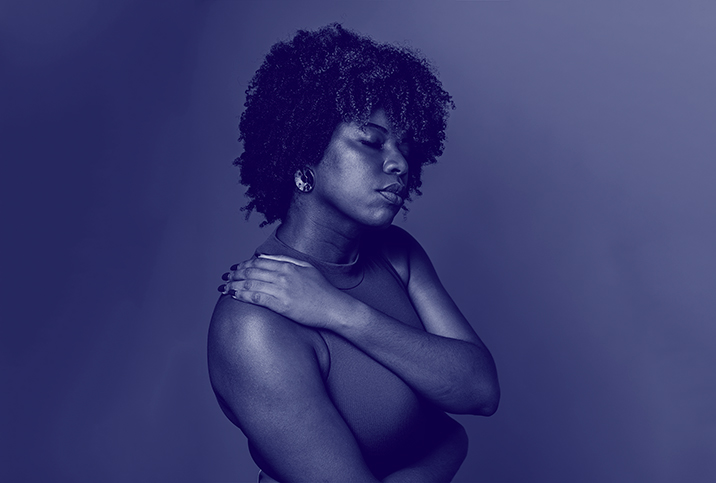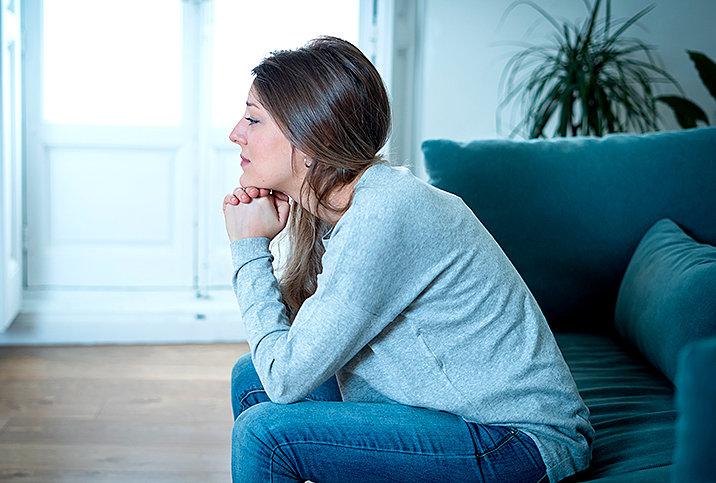Gaining and Losing Control Through Sex

To say my sexual journey has been one hell of a bumpy ride would be an understatement. I grew up in a staunch Catholic home and attended an all-girls Catholic school for the first 17 years of my life. This upbringing heavily influenced how I viewed sex in my early years.
Growing up, the sentiment constantly emphasized was that sex is preserved for marriage. We were taught in school that sex was purely for procreation between a woman and her husband—not for satisfaction. Fornication and homosexuality were heavily frowned upon, and we were made to believe these acts were grave sins that would be punishable via eternal condemnation in a burning hell.
My teachers called me "boy crazy," when in reality, I was just a young, curious child, hungry to learn and explore. I remember getting into loads of trouble in second grade when two of my friends and I were caught exchanging kisses in the bathroom. It was reported to our class teacher, who wrote a nasty letter home to my parents complaining about my "sinful" same-sex behavior. After this incident, I became terrified of engaging in other sexual acts with women.
"Growing up in a sex-negative culture can cause us to harbor not just guilt and shame but a lot of harmful thoughts about sex; this includes internalized homophobia and sexism," said Varuna Srinivasan, a sexual health expert and gender justice activist based in New York.
A virgin throughout Catholic school
After my final high school exams, I moved out of Kenya to pursue my studies in Cape Town, South Africa. I was free from the shackles of Catholic school and could finally be myself. During my first two years in Cape Town, I realized I wasn't the evil child that Catholic school had made me out to be. It was liberating to escape the bubble I grew up in and experience the real world.
"Organized religion has made a habit of shaming sexuality in order to control people's behaviors for millenia," said Joslyn Nerdahl, C.S.C., a clinical sexologist from Vancouver, British Columbia, Canada.
But I persevered. I met a Zimbabwean guy in my first year at the University of Cape Town and we started dating. He would ask me to have sex, but I declined because I was not ready. I knew nothing about sex and was afraid I wouldn't know what to do in bed. By the end of the year, I was fed up with my virginity. I would hear my friends' stories about their sexual encounters, which sounded exciting and thrilling. I made up my mind that I would have sex with my Zimbabwean boyfriend when I returned to school the next year. However, my views about my virginity were problematic at the time. I felt like I was giving away a big part of myself to this guy. I viewed my virginity as a birthday gift to him. Looking back, I realize how wrong this all was.
My Zimbabwean beau broke up with me on the day I planned the big surprise. He had become frustrated with waiting for sex and didn't know about my plans to finally have sex with him. I remember feeling so heartbroken and tied down by my virginity that I decided I would lose it to the next guy who asked for it.
I turned 20 in February 2015, and a few months later, I was sexually abused. My virginity was gone. I remember feeling very embarrassed by this experience and kept it to myself for many years. I didn't have sex after that for several months.
"Sexual assault causes a myriad of physical and mental health issues," Srinivasan said. "Emotionally, it can make us distance ourselves from others, have a tough time trusting others and difficulty maintaining romantic relationships."
However, building a new relationship with sex was essential. I was determined to change my experience. I wanted to enjoy it, to fully feel what my friends were describing and to take control of my body, which had been so wrongfully violated. One day, I decided to try masturbating for the first time. I explored my clitoris and vagina using my fingers, focusing on where I felt the most sensations. That was the first day I had an orgasm. My first orgasm turned into more sessions of masturbation and self-stimulation, all with the help of fantasizing about women.
Over the next five years, I had a lot of sex
Nerdahl said overcoming the shame surrounding sex can be done by learning about your body.
"Finding small things to love and appreciate about your body is the start to de-escalating shame," she said. "Once you can appreciate your body and what it does for you, then moving on to appreciating your body's capacity for experiencing pleasure can begin."
Masturbation opened up a new world for me and made clear what and who I found attractive, something my Catholic school upbringing repressed and shunned.
Soon after, in January 2020, I moved back home to Kenya and felt empowered to explore my sexuality. I experienced a lot of pain and heartbreak during the next couple of years in my relationships, which pushed me to become celibate in November 2021.
'Once you can appreciate your body and what it does for you, then moving on to appreciating your body's capacity for experiencing pleasure can begin.'
I am still practicing celibacy as I try to gain clarity about my sexual needs and desires. In the beginning, I struggled a lot. I constantly felt horny and sexually frustrated. Masturbating was my best friend as I tried to distract myself from sexual urges. But after three weeks, celibacy wasn't so bad.
"Celibacy practiced on your terms can be an incredibly empowering experience," Srinivasan said. "Celibacy can be practiced in any way: activity-specific abstinence or overall abstinence [abstinence of all sexual contact]. It's a great way to assert your boundaries and decide how you want to engage in regards to sex."
Looking back at my sexual journey, I see I definitely suffered from internalized homophobia due to my Catholic background. When I decide to start having sex again, I would like to commit to being more open in exploring my sexuality, even with women.
"Everyone's healing journey looks different and it's not going to be a one size fits all," Srinivasan said. "Some people find healing through therapy, whether it's art or CBT [cognitive behavioral therapy], community/peer support groups or practicing celibacy. It's important to take all the time you need and not rush what you feel. Rely on friends and family to help you get through it; don't go through this experience alone, and if you're going to have sex again, start very small."
















